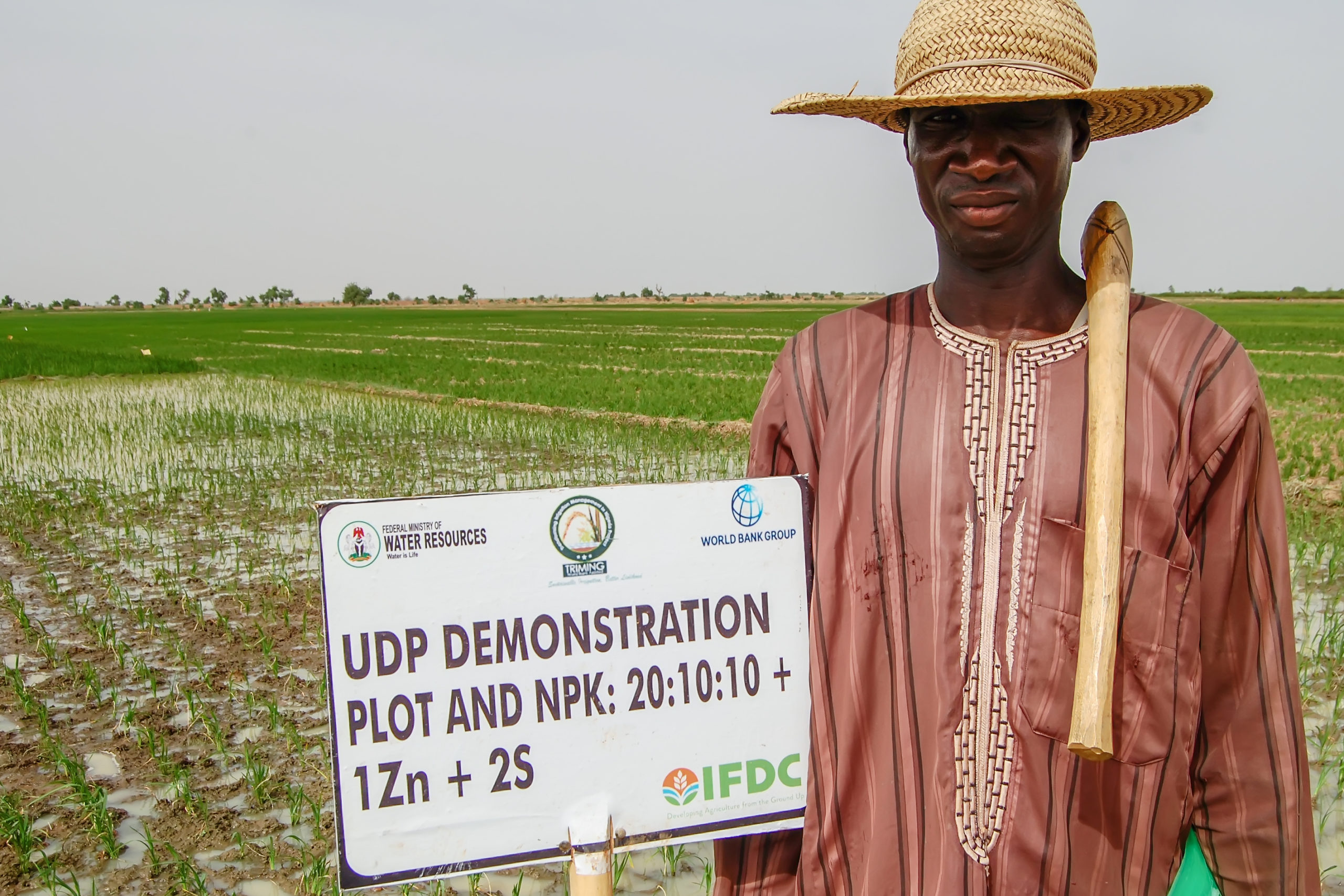
Standing in his learning field, watching the activities going on, no one would have labelled him a vulnerable farmer.
Kurman Isa is a 35-year-old farmer and a member of the Alheri Rice farmers association of Bakura Cluster in Zamfara state, Nigeria. As a father and husband, Isa is saddled with the responsibility of providing adequately for his family, despite having a speech impediment. At an early age of 17, Isa started to farm to support himself through school, where he learned how to read and write. Now, however with assistance from IFDC through the World Bank-funded Transforming Irrigation Management in Nigeria (TRIMING) project, he has embraced farming as a business to support his wife and two children.
Isa explains the challenge of being a farmer: many gaps that exist between subsistence farming and farming as a lucrative source of income. Being a handicapped farmer makes it more challenging; one often starts from a disadvantaged point, particularly because the system does not work efficiently to educate and provide an enabling environment for vulnerable or disadvantaged people.
Although Isa had been farming for many years, his inability to satisfactorily expand his cultivated area and his employment of traditional farmer practices had limited his yields and income. Through a sensitization exercise conducted by facilitators and extension agents with the Agricultural Development Project, Isa learned about the objectives of the World Bank-funded Transforming Irrigation Management in Nigeria (TRIMING) project. With a desire to learn and improve his production capacity, he joined the Alheri Farmers’ Field and Business School (FFBS) in 2017. Since then, the IFDC and ADP have introduced Isa and other FFBS members to productivity enhancing technologies and best management practices.
He expressed his gratitude illustrating some of the new things he has learned through the training and participation in the Alheri FFBS. He communicated that it has not been stress free because of his slower pace to catch up, but Isa has had no regrets participating and engaging actively in the FFBS. The training programs such as the Agro-Eco System Analysis (AESA), technologies such as urea deep placement (UDP), and linkages to agro-input and -output markets are creating opportunities for a better livelihood for Isa and his family.




